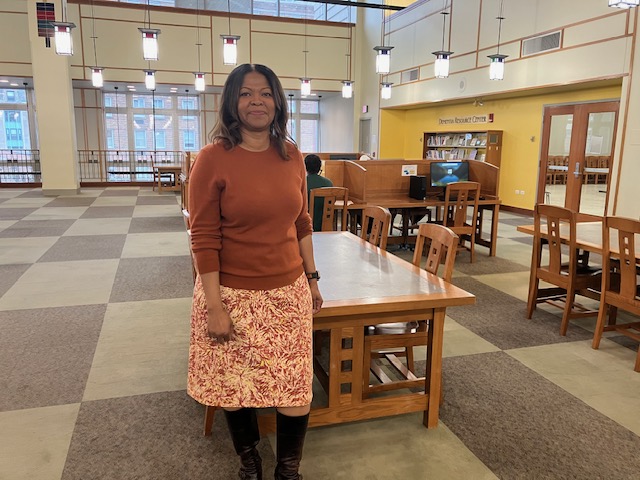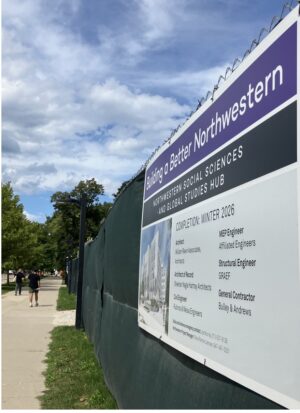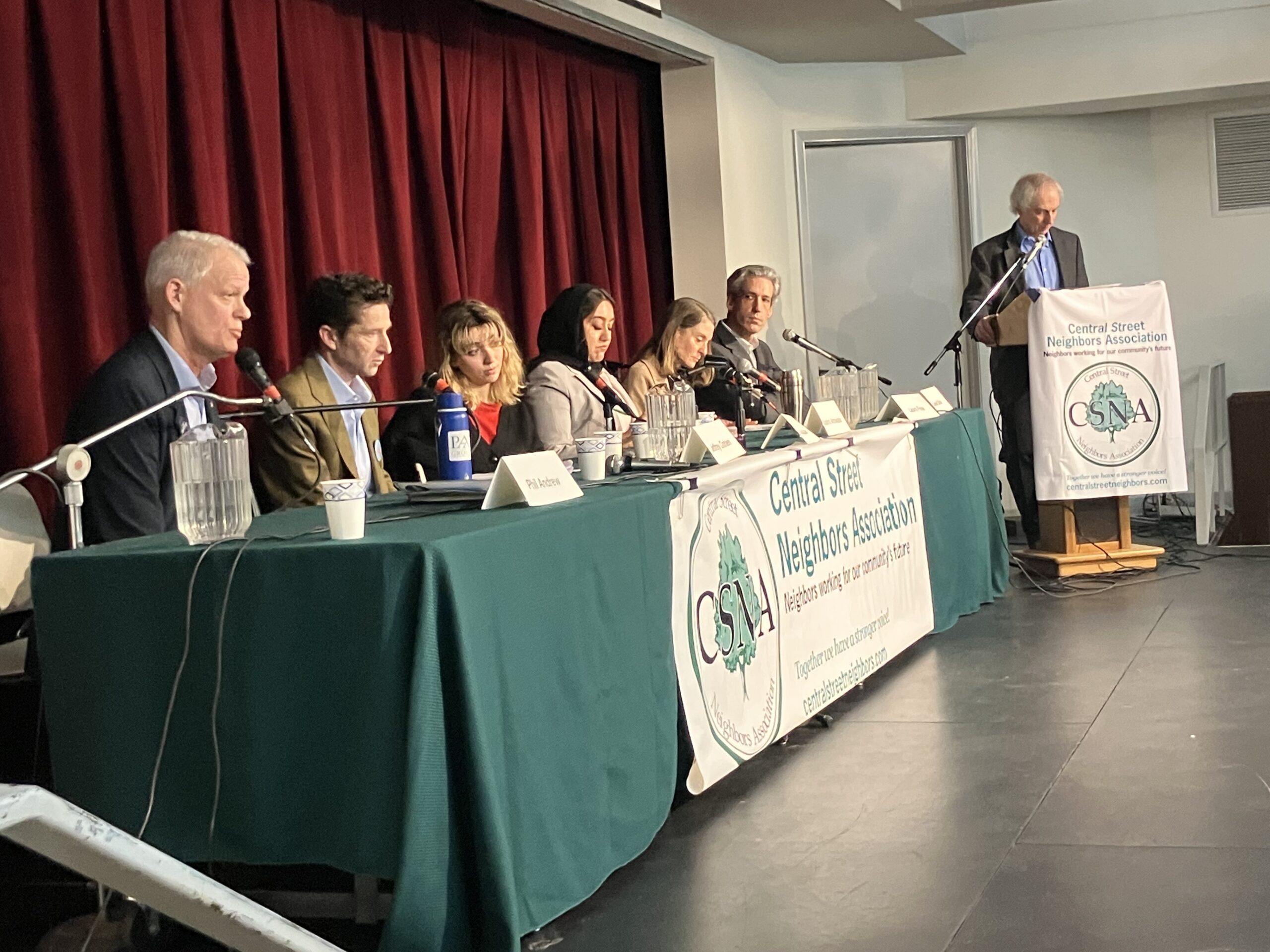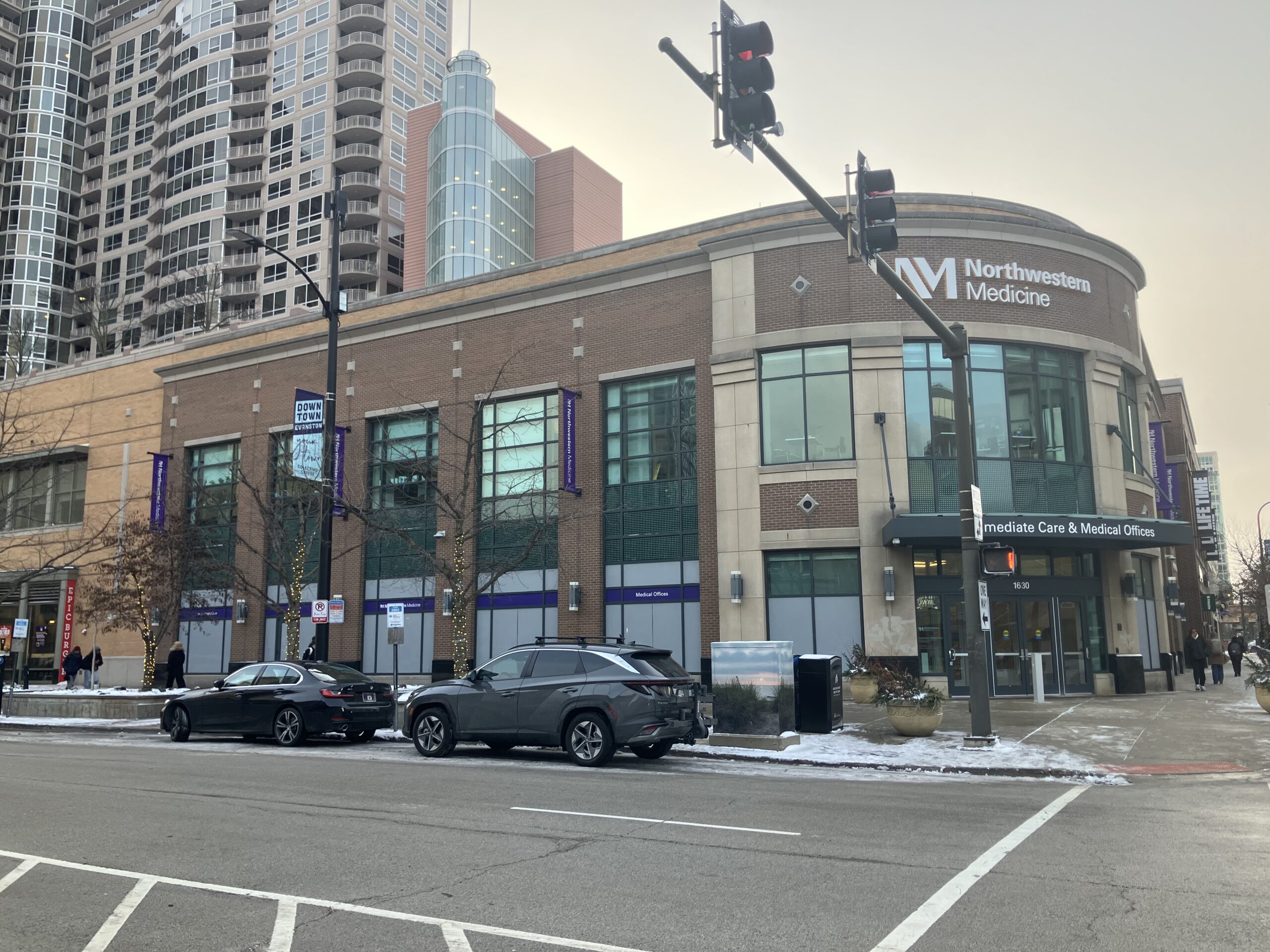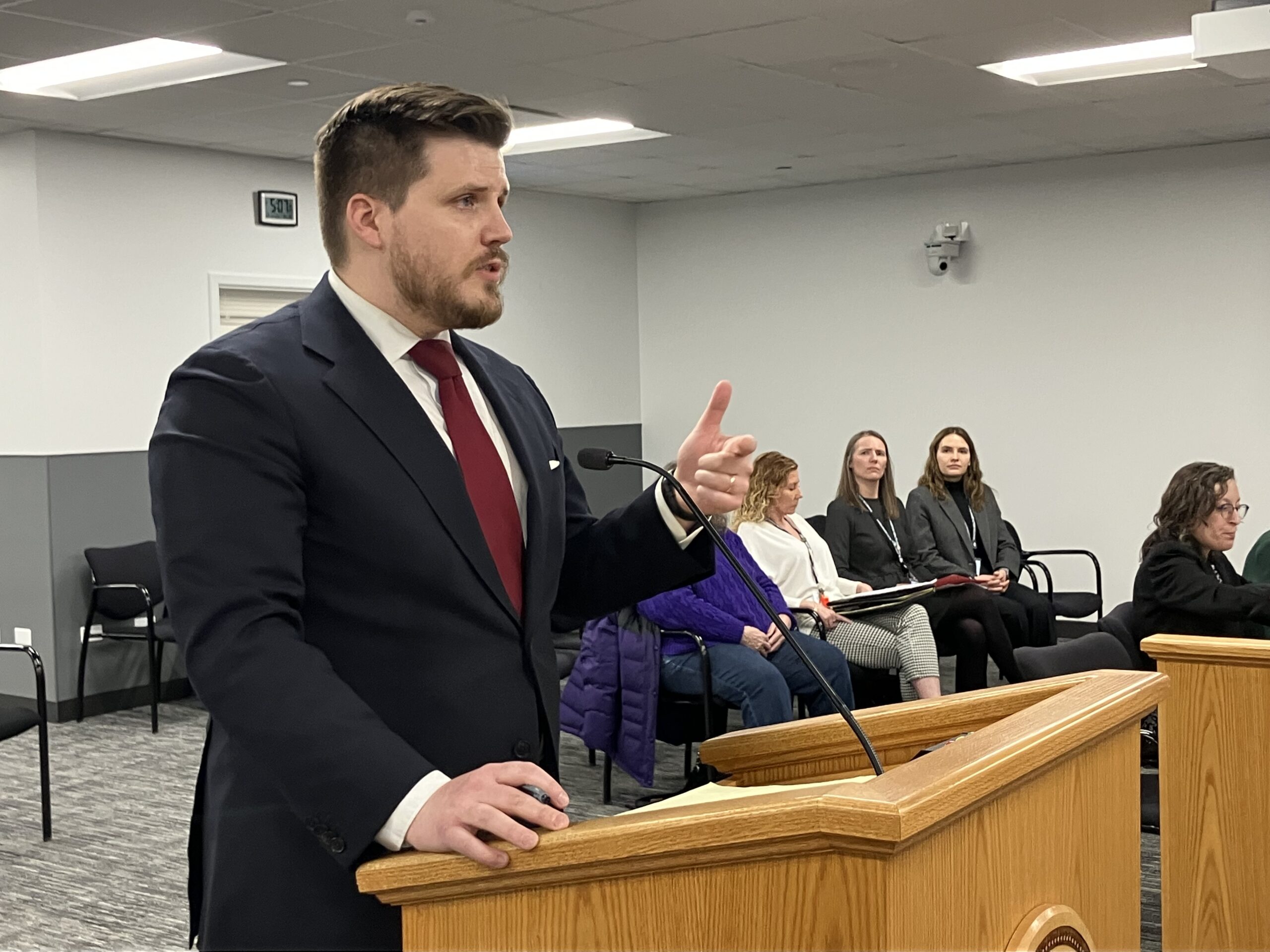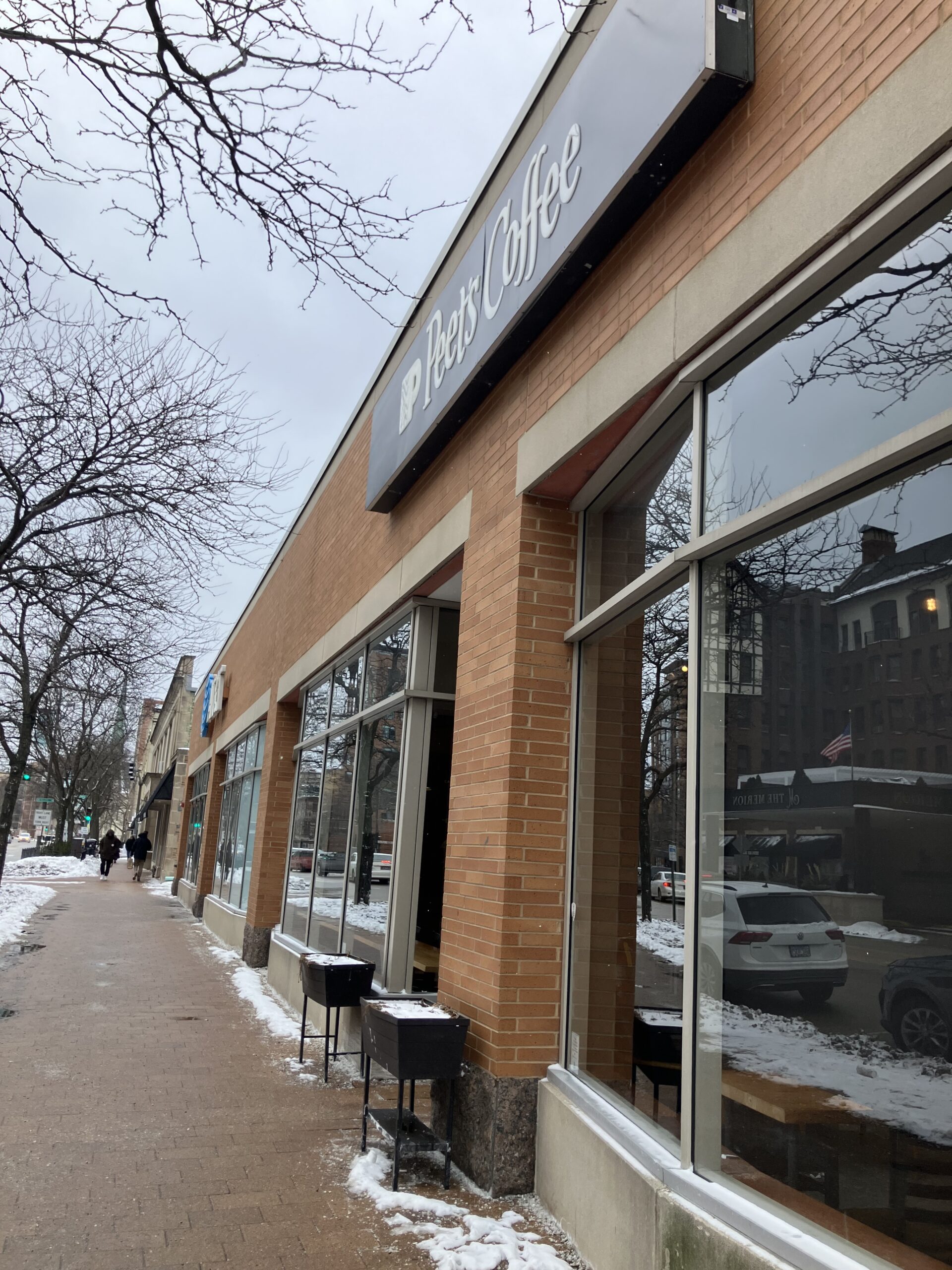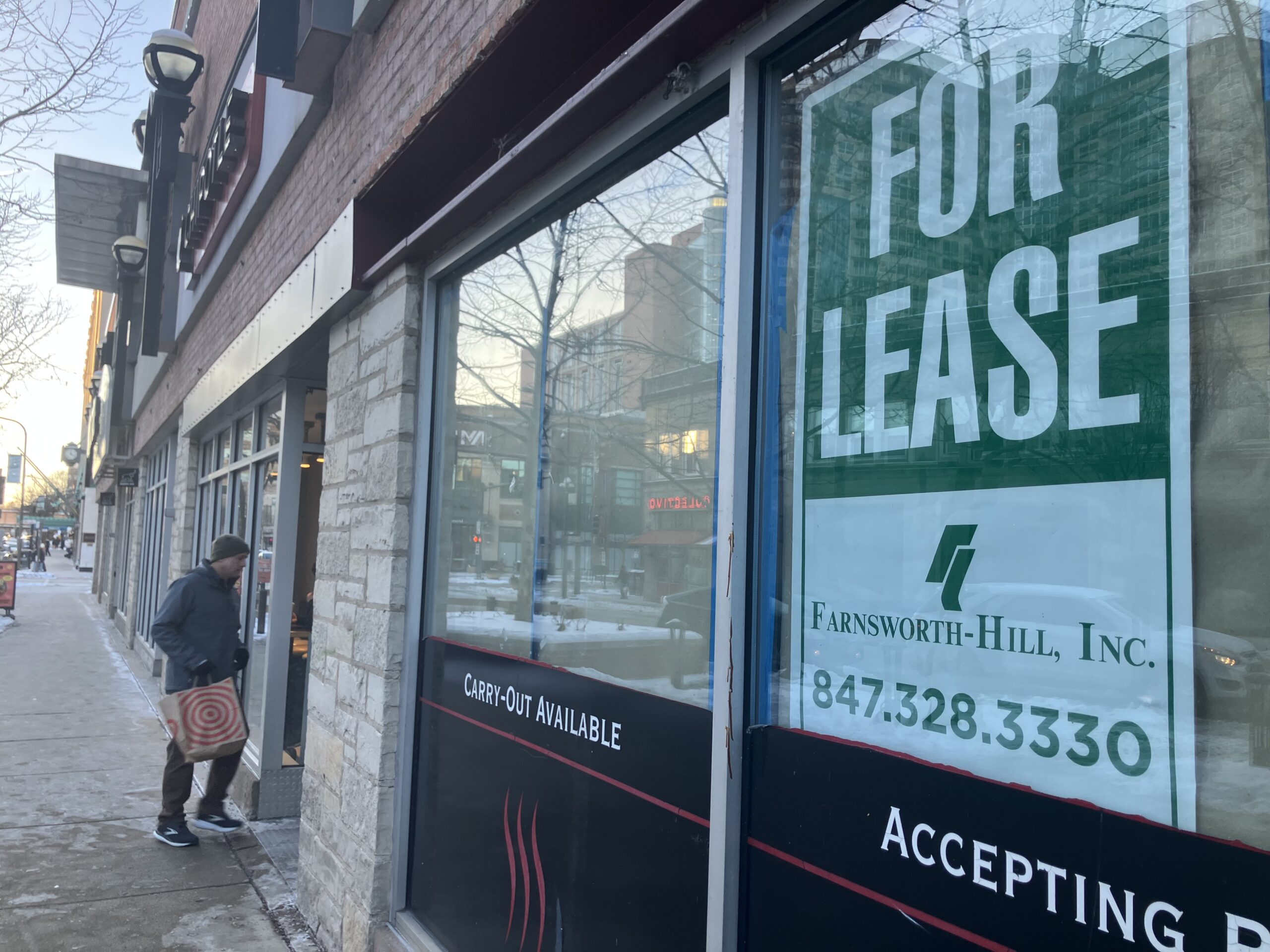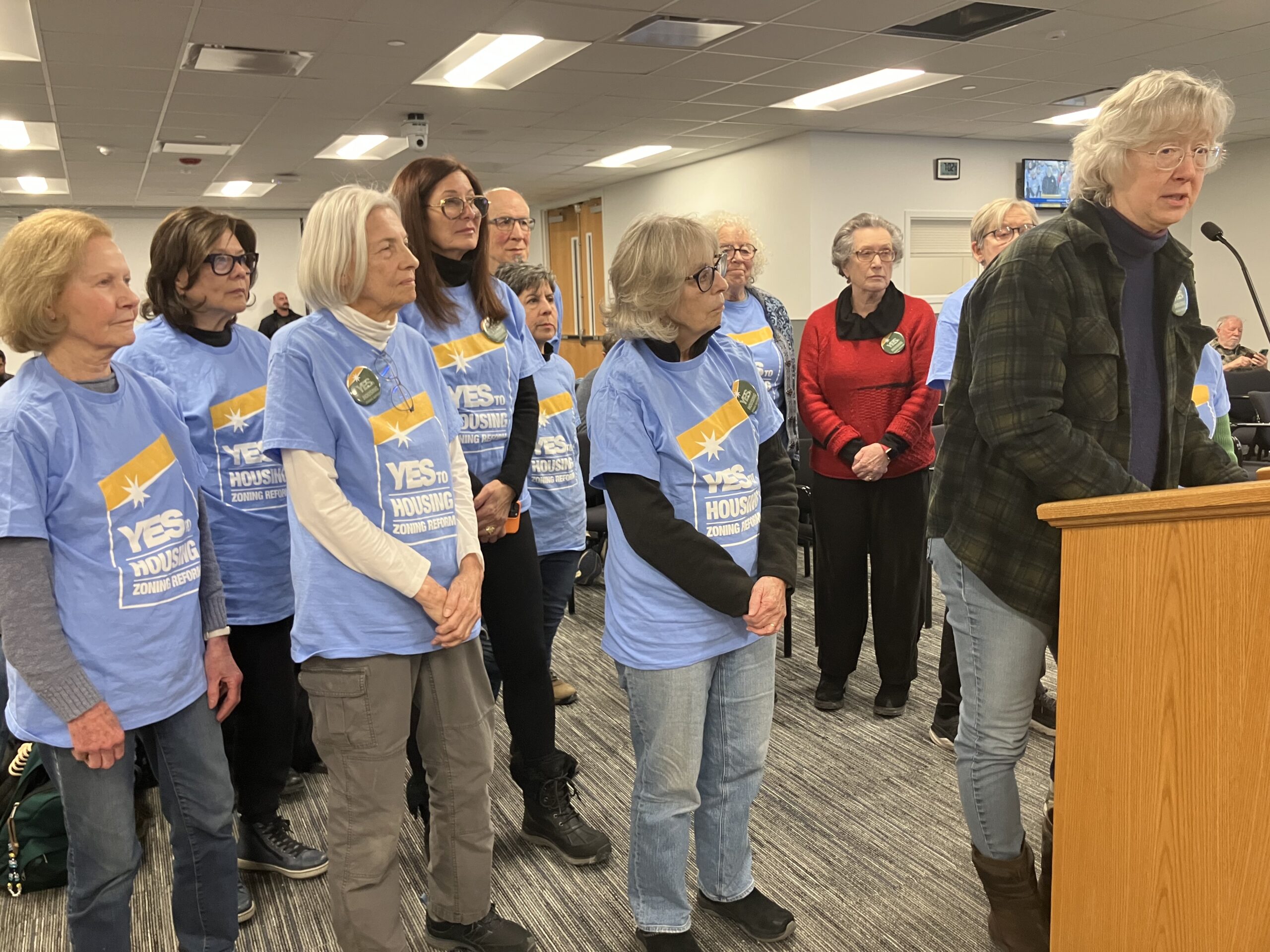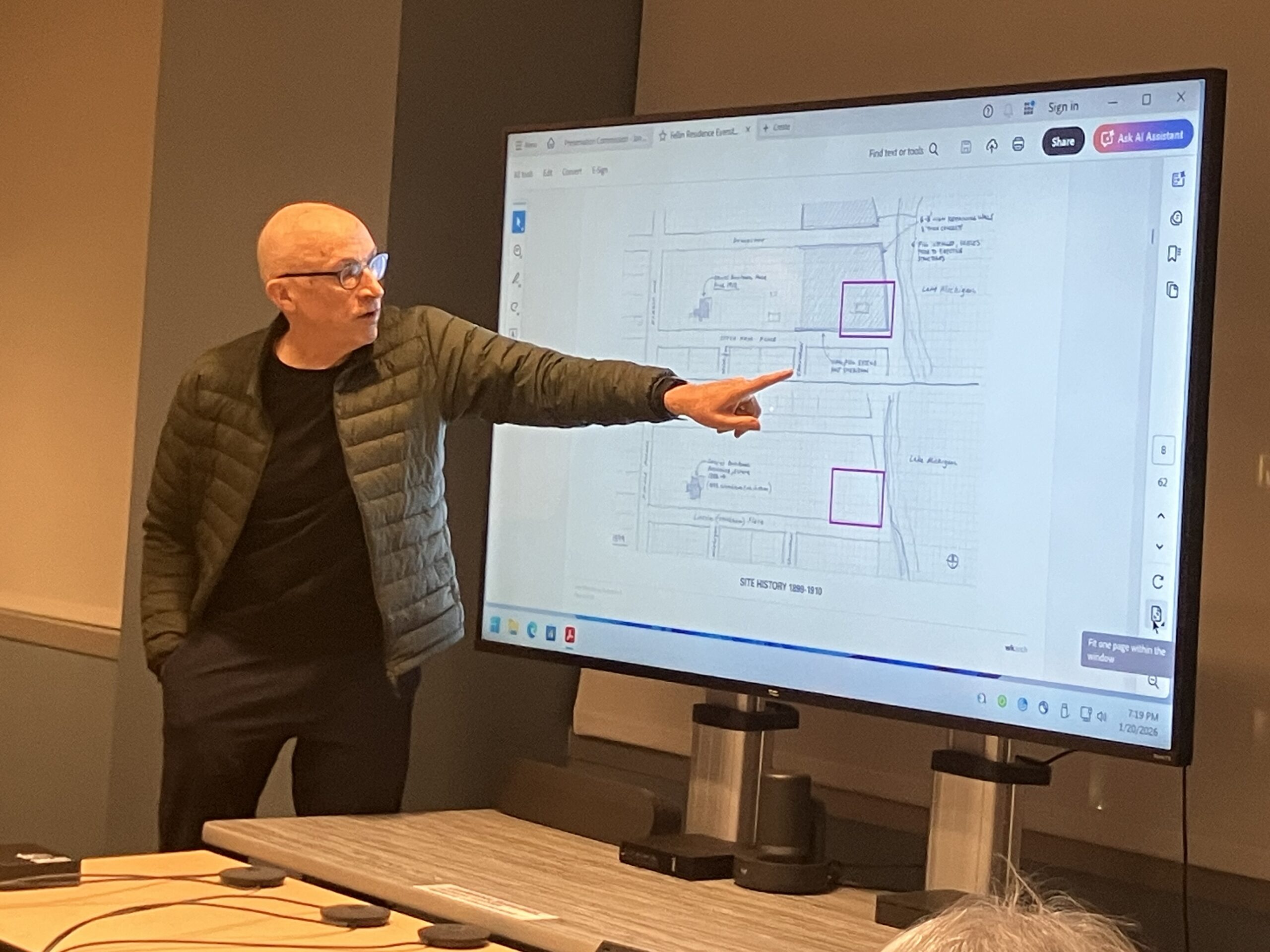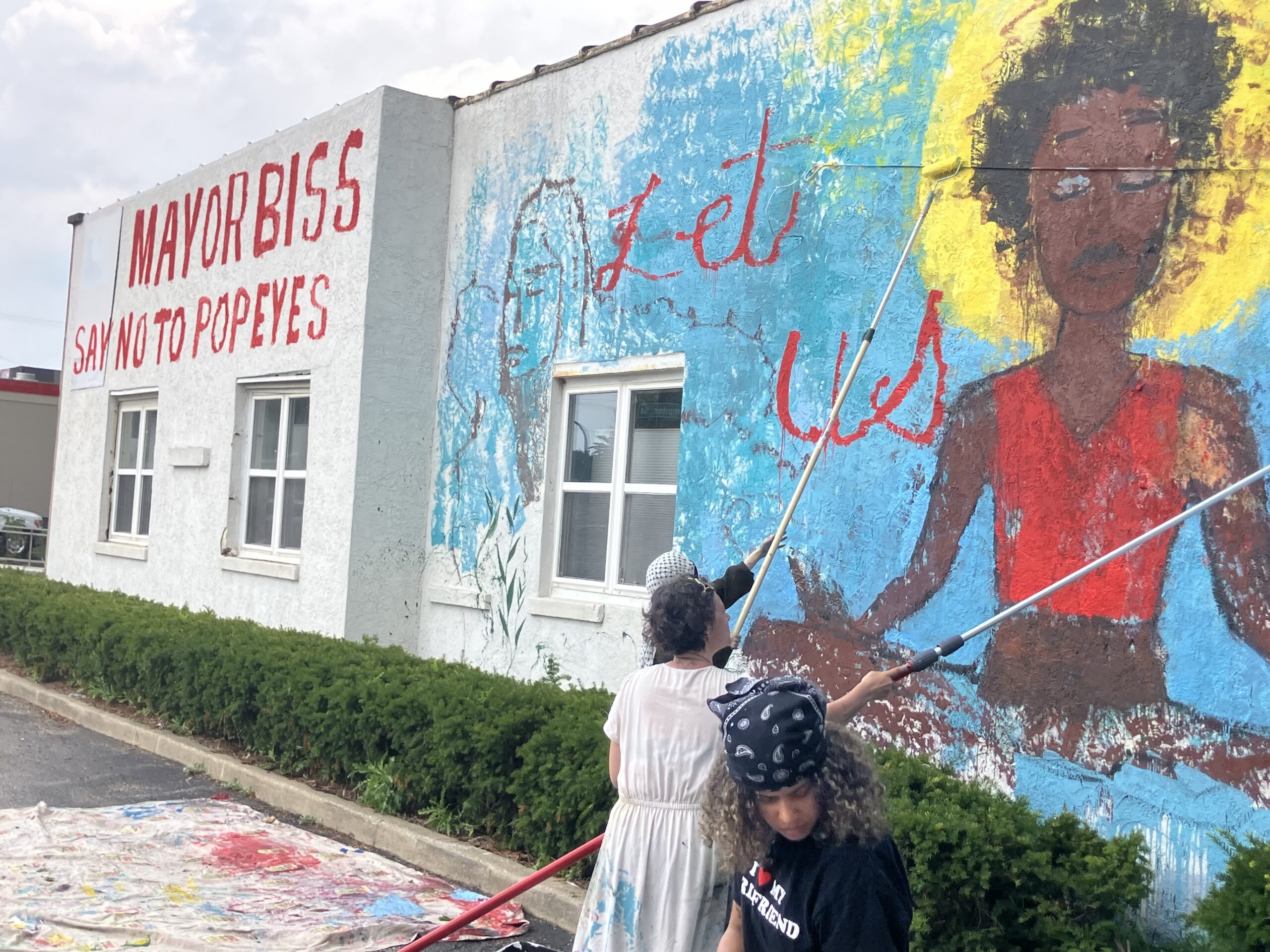The Popeyes franchisee, Karim Poonja of Glenview, originally applied for a Type 2 restaurant permit, receiving administrative approval from city staff on June 30 (Type 2 is the classification typically given to fast-food locations, because the Type 1 category requires table service).
Councilmember Krissie Harris, in whose Second Ward the site is located, backed that decision, maintaining that when community concerns arise, the city has an established administrative review process to address them.
Harris reiterated that view when asked again on Tuesday. She said a mural on Heartwood’s west wall was an idea brought up about a year ago, and that an appropriate design “should happen” because “it will brighten up the area.”
Told in more detail about the contents of the artwork that went up on Tuesday, though, she said “that’s really political,” and declined to comment further.
Klotz: No way for Popeyes to qualify as Type 1
With community opposition building, Poonja withdrew his Type 2 application last month and said he intended to reapply as a Type 1 restaurant.
Melissa Klotz, a former zoning administrator for the City of Evanston and a consultant for the coalition opposing Popeyes, said in a statement that “if the city code is interpreted and enforced properly, there is no way for a Popeyes restaurant to qualify as a Type 1 restaurant.”
“The wording of the zoning code is unambiguous, and all past precedent is consistent and extremely clear: Popeyes is a Type 2 restaurant, not a Type 1,” Klotz said. “As a Type 2 restaurant, city officials can and should deny it permission to operate.”
She expressed concern that if Popeyes is approved as a Type 1, “it opens the door to fast food restaurants popping up in every neighborhood in Evanston, operating under the guise of a full-service restaurant, without the public having any say.”
Klotz had previously maintained that the city’s administrative approval of Poonja’s original application for a Type 2 restaurant did not align with local zoning laws.
Fast-food franchises are generally regarded as Type 2 restaurants under the zoning code and are often be handled through staff review.
However, in considering an administrative review use, the city’s zoning administrator, community development director and city manager or their designee must defer to a public special use process — which would include a hearing before the Land Use Commission — if any of the following standards are not met, which require documentation showing that the proposed use:
- Shall not cause a negative cumulative effect on surrounding properties or the immediate neighborhood
- Shall not interfere with or diminish the value of property in the area
- Shall not cause undue traffic, parking congestion or noise
Also, under the city’s zoning ordinance, any administrative review should take into consideration the proposed use’s effect on the surrounding community’s vacancy rate, other businesses proposed nearby and public health.
A call to hold city staff accountable
Floy said Tuesday that the mural “is our call to Mayor Biss to step up and hold city staff accountable for their actions.”
“We have just learned from FOIA [Freedom of Information Act] documents that city staff actually approved Popeyes as a Type 1 sit-down restaurant on July 23,” she said.
“City staff deliberately chose not to post this on the weekly zoning report or the citizens portal. But we have uncovered their lack of transparency and will appeal this decision and expect to win at the Land Commission. Mayor Biss, are you listening? We demand that city staff follow zoning code and stop withholding public information.”
Responding to these accusations in an email, city spokesperson Cynthia Vargas said Popeyes’ Type 1 application was not on the weekly zoning report from Friday, July 25 because staff had already completed its zoning analysis on Wednesday, July 23.
“The report captures items that are still under review by staff. Zoning cases are not publicly available on the Civic Platform,” she wrote, referring to the online portal where residents can access city information and report issues.
Vargas noted, however, that the availability of zoning analyses on the platform “is forthcoming as part of a planned upgrade that the Community Development Department is selecting a vendor for the City Council’s consideration.”
Floy, who is also the president of the West Village Business Association, maintained that having two local woman-owned businesses in the space aligns much more closely with both the city’s EPLAN (Evanston Process for the Local Assessment of Needs), by promoting health strategies, and Evanston Thrives, an initiative to better market the distinct qualities of the city’s eight business districts.
She noted that the Dempster and Dodge area already has the highest concentration of fast-food restaurants in the city, with a Burger King, McDonald’s, Starbucks and Dunkin’ on that corner.
Harris: Discrimination against fast-food a concern
At the Second Ward meeting held Tuesday night, Harris suggested that equal treatment was a consideration in the city’s evaluation of Popeyes’ application, because those other fast-food franchises nearby have operated there for decades. She said the city has legal concerns about the appearance of discriminating against fast-food businesses like Popeyes if it were to reject its application.
Harris also responded forcefully to a speaker who suggested that Popeyes had some kind of insider connection with the city.
“It isn’t a matter of them knowing somebody — they saw the opportunity to buy that space. What they talked about since day one, they were going to parcel that building into three parts. They were taking the furthest part from Dodge and making that Popeyes,” she said.
“I’m not advocating. I’m just giving you the facts.”
